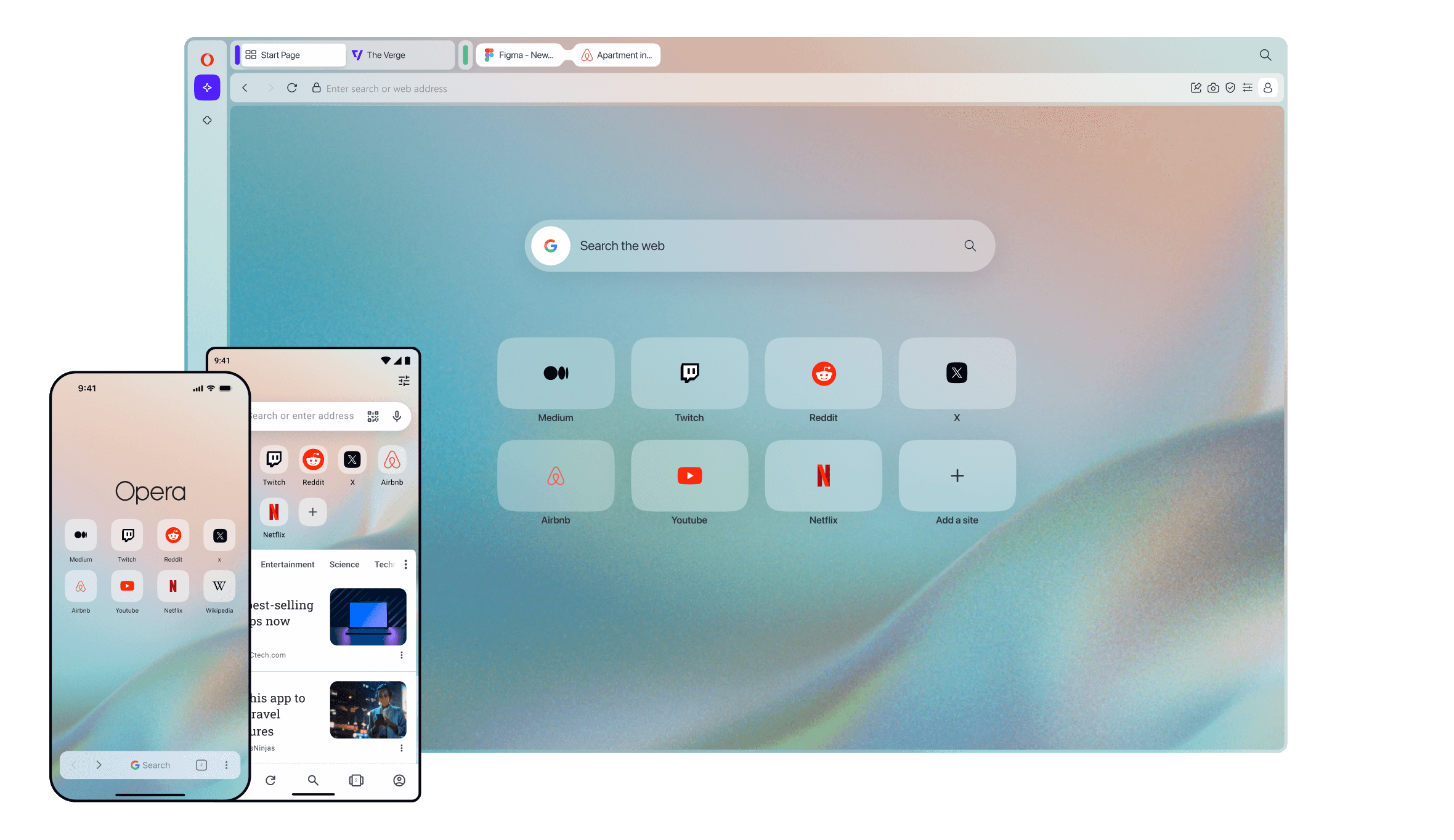The end of ordinary search as AI becomes smarter

A few years ago, planning a multi-city trip to Europe involved a familiar ritual. You would open a dozen browser tabs, comparing flight prices on one site, train schedules on another, and hotel reviews on a third. You pieced together information from travel blogs, city guides, and forum posts, slowly building an itinerary in a separate document. The process was a digital scavenger hunt, with you as the sole architect of the final plan.
Today, that process is starting to feel outdated for some. You can now ask a single, complex question in a chat-style interface: “Plan a 10-day trip to Italy for a family of four in July, focusing on history and food, with a budget of $8,000.” Within seconds, you receive a detailed, day-by-day itinerary complete with suggested cities, travel links, and restaurant ideas. This is not science fiction; it is the new reality of search.
The silent, steady engine of the internet is undergoing its most significant transformation since its inception. Traditional keyword-based search, the method we have used for decades, is giving way to something far more intuitive and powerful. Artificial intelligence is no longer just a background tool for ranking results; it is becoming the primary interface through which we find information. This shift changes not only how we search but what we expect from the internet itself.
The old way of finding things
For most of its life, online search has operated on a simple principle. You type in a few keywords, and the search engine acts like a hyper-efficient librarian. It scans its massive index of the web, which contains trillions of pages, looking for documents that match your terms. It then uses a complex algorithm to rank these pages based on relevance, authority, and hundreds of other signals.
This system, pioneered by companies like Google, was revolutionary. It organized the chaotic expanse of the internet, making it navigable for the average person. The goal was to provide a list of links, a set of potential answers, from which you could choose. The cognitive heavy lifting was still on you, the user. You had to click through the links, synthesize the information, and arrive at your own conclusion.
This model is incredibly effective for finding specific facts, like the capital of Mongolia or the apgar score of a newborn. It excels at what information retrieval experts call “known-item” searches. You know what you are looking for, and you just need the system to point you to the right document.
But the limitations of keyword search become apparent when your query is more complex or exploratory. Asking "what are some healthy, easy-to-make dinner recipes for someone who dislikes tomatoes" would have traditionally required multiple searches. You might look for "healthy dinner recipes," then "easy recipes," and then manually filter out anything with tomatoes. The search engine gave you ingredients, not the finished meal.
The dawn of conversational answers
The new generation of search tools, often called AI assistants or generative AI, operates on a fundamentally different premise. Instead of matching keywords to documents, they aim to understand the intent and context behind your question. They are built on large language models, or LLMs, which are complex neural networks trained on vast amounts of text and code from the internet.
This training allows them to grasp grammar, context, facts, and even reasoning. When you ask a question, the model does not just look for matching words. It processes the meaning of your query and generates a new, original response in natural language. It synthesizes information from countless sources to give you a direct answer, a summary, or a creative piece of text.
This is the core difference. Traditional search finds things. AI-powered search creates things. It moves from being a directory to being a collaborator. It can draft an email, write a poem, debug a piece of code, or plan your vacation because it is not just retrieving information; it is generating it.


Meet the new generation of search
This paradigm shift is not a distant future concept; it is already integrated into the tools millions of people use every day. The most prominent players have all raced to embed generative AI into their core products.
Google, long the undisputed king of search, has integrated its AI capabilities directly into its main search results page. These "AI Overviews" appear at the top of the results for many queries, providing a summarized, paragraph-style answer. Instead of just offering links about the best way to clean suede shoes, Google now gives you a step-by-step guide directly on the page, compiled from various web sources.
Microsoft has taken a similar but distinct approach by deeply integrating OpenAI’s technology into its Bing search engine. Now called Microsoft Copilot, it functions as a chat-based assistant that lives alongside the traditional search results. You can ask it to compare products, summarize articles you are viewing, or even generate images based on a text description. It presents search as an ongoing conversation rather than a series of one-off queries.
Then there are standalone platforms like ChatGPT, the tool that brought generative AI into the public consciousness. While not a search engine in the traditional sense, it is often used as one. People turn to it for explanations of complex topics, for creative inspiration, and for help with practical tasks. Its ability to provide detailed, human-like responses has made it a go-to for questions that feel too nuanced for a simple keyword search.
These tools are changing user behavior. Instead of typing "best running shoes for flat feet," a user might now ask an AI, "I have flat feet and mild knee pain, and I run about 15 miles a week on pavement. What are three running shoe models I should consider, and why?" The query is more natural, more detailed, and the expected answer is a tailored recommendation, not just a list of articles.
How it changes the user experience
The move toward AI-driven search represents a fundamental shift in user experience, moving from retrieval to dialogue. This has several profound implications for how we interact with information online.
First, it dramatically lowers the barrier to entry for complex research. A student writing a paper on the economic impact of the Renaissance no longer has to spend hours sifting through academic journals and historical texts. They can ask an AI to summarize the key arguments, identify the major historical figures, and even suggest an outline for their essay. The AI becomes a research assistant, accelerating the initial phase of information gathering.
Second, it makes the web more accessible. For individuals who struggle with digital literacy or have difficulty parsing dense websites, a conversational interface is far more approachable. Getting a direct, plain-language answer is much easier than navigating a maze of links, pop-ups, and poorly designed user interfaces. It personalizes the web, tailoring its vastness to the specific needs of one person.
Third, it fosters creativity and exploration. Because these AI models can generate new content, they can be used as creative partners. A marketer can ask for a dozen different headline ideas for an ad campaign. A developer can ask for sample code in a new programming language. A novelist can ask for plot ideas to overcome writer's block. This moves search from a purely informational tool to a generative one.


The browser as an intelligent partner
This evolution is not limited to search engine websites—it extends into web browsers as well. Browsers are increasingly incorporating AI tools to help users interact with information more effectively as they navigate the internet.
For example, browsers like Opera have begun integrating AI assistants directly into the browsing experience. Opera AI, built into the browser sidebar, offers features such as summarizing or translating highlighted text, generating replies to emails, or finding related information without the need to open new tabs. This kind of contextual support allows users to access assistance based on what they are viewing at any moment, demonstrating how AI can make everyday online activities more streamlined and responsive to individual needs.
This integration points to a future where the browser is not just a tool for viewing pages but an active participant in your online tasks. It can help you compare products across different shopping sites, manage your research for a project by organizing tabs and summarizing content, and protect you from misinformation by cross-referencing claims in real time. The browser becomes less of a vessel and more of a co-pilot.
The challenges and questions ahead
This new era of search is not without its complexities and concerns. The very nature of generative AI introduces new challenges that we are only beginning to grapple with as a society.
One of the most significant issues is accuracy. LLMs are designed to generate plausible-sounding text, but they are not infallible sources of truth. They can "hallucinate," a term used to describe instances where the AI confidently states incorrect information as fact. Because the answers are presented in authoritative, well-written prose, it can be difficult for a user to spot these errors. This places a new burden on users to be critical consumers of information.
Another concern is bias. The AI models are trained on data from the internet, which contains a wide spectrum of human biases, stereotypes, and prejudices. There is a risk that these models will perpetuate and even amplify harmful biases in their responses. Technology companies are working to mitigate this, but it remains a persistent and difficult problem to solve.
The economic model of the web is also being disrupted. For decades, content creators, from bloggers to major news organizations, have relied on search engine traffic for their livelihood. They create valuable content, and search engines send them visitors, who in turn view ads or subscribe. When an AI summarizes the content directly on the search results page, the user may no longer have a reason to click through to the original source. This raises fundamental questions about how high-quality content will be funded in an AI-driven world.
Finally, there are the issues of privacy and data security. To provide personalized, contextual answers, AI assistants need access to a great deal of information about you, including your search history, your location, and the content you are viewing. How this data is stored, used, and protected is a critical question that will require robust regulation and transparent practices from tech companies.


A new relationship with information
The transition from keyword search to conversational AI is more than just a technological upgrade. It represents a shift in our fundamental relationship with digital information. We are moving away from a model where we are the hunters, seeking out specific pieces of data, to one where we are in a dialogue with an intelligent entity that can synthesize, create, and reason.
This does not mean the old way of searching will disappear overnight. There will always be a need to find specific websites, documents, and facts. The list of blue links is not dead, but its role as the primary interface for knowledge discovery is diminishing. It is becoming part of a larger, more versatile toolkit.
The future of search is one where our intent is understood more deeply and our needs are met more directly. It will be more conversational, more personal, and more context-aware. The simple search box is evolving into a partner that can help us learn, create, and navigate the complexities of our world with greater ease and efficiency.
The journey has just begun. The technology is still in its infancy, and we are still learning how to best use these powerful new tools. But one thing is clear: the days of ordinary search are numbered. We are entering an era where finding information is less about knowing the right keywords and more about asking the right questions. The internet is finally learning to speak our language.
Related articles
You deserve a better browser


Press Contacts!
Our press team loves working with journalists from around the world. If you’re a member of the media and would like to talk, please get in touch with us by sending an email to one of our team members or to press-team@opera.com



